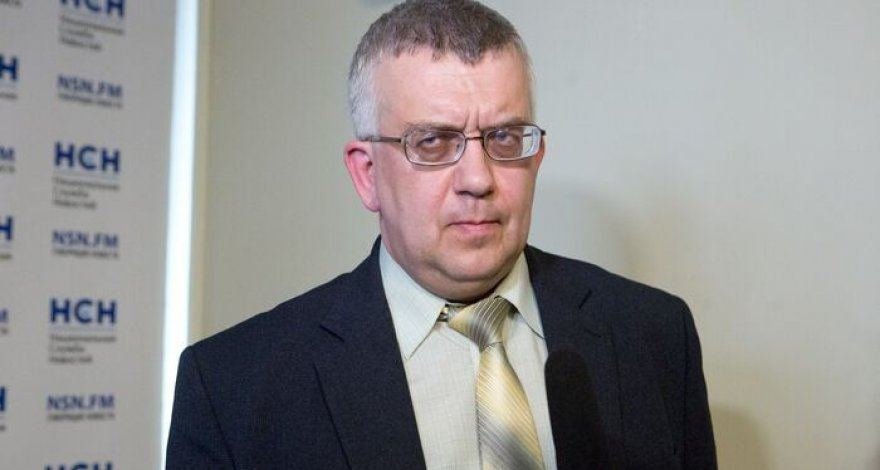

Iran many times proved to be the starting point for drug trafficking, regardless of whether its authorities are involved in it or not, Russian historian and political analyst, professor Oleg Kuznetsov told TurkicWorld.
“For almost a month now I have been talking and writing that Iran in its current theocratic incarnation actively manifests itself and has weight in international politics only in the gray zones of the Big Middle East with no strong statehood and political stability, which include Iraq, Syria, Lebanon, and Yemen. This is the whole list of points on the global political map, where Iran really has a military-political influence,” Kuznetsov said.
“Until recently, this list also included Karabakh, but after Azerbaijan defeated the occupation forces of Armenia last autumn and returned this territory under the jurisdiction of official Baku, this region was excluded from the list of "backyards" of Tehran, and the fact caused its irritation and even the gnashing of teeth, which all of us witnessed and still witness," he noted.
According to the analyst, presently official Tehran is annoyed and obsessed with a feeling of frustration caused by the loss of control over the "gray zone" in Karabakh, through which it carried out its drug trafficking to Europe to support materially and ideologically dependent Shiite groups in the above countries.
Besides, as Kuznetsov pointed out, Iran used Karabakh for replenishing its reserves of certain types of ore and mineral resources and created there a network of smuggling of energy resources, thus exploiting the situation of the occupation of Azerbaijani lands with full economic benefit for itself.
"After Armenia's defeat in the war against Azerbaijan last autumn [Second Karabakh War], this entire system of criminal business, which was carefully created for 25 and even 30 years and brought multibillion dollar revenues, collapsed rather fast, causing a very serious blow to the resource potential of Iranian foreign policy, depriving the affiliated Shiite military groups in various countries of the Middle East and Western Asia region of their established source of funding," he also said.
"Iran now objectively cannot at the same level sponsor its proxy groups in Syria and Lebanon, and therefore claims the presence of some "Zionists" on Iranian-Azerbaijani border, but this is not because of a desire to annoy Azerbaijan, but because of its inability to change the situation and impossibility to restore the funding of its ideological satellites in the same volume," the expert stressed.
"I won’t mention here Iran's all unfriendly actions towards Azerbaijan taken in recent weeks. Everyone [who knows the situation in the region] is well aware of them, as well as the principled and very tough reaction of President Ilham Aliyev to all provocations, threats and demonstrations of force,” Kuznetsov noted. “Azerbaijan will never allow using its territory as a drug traffic corridor, which was proved by the successful operations of the State Border Service of Azerbaijan both on the land, and sea border between the two countries. The information available in the public sources shows that Azerbaijan coped to confiscate narcotics in the world "black market" prices amounting to $1-2 billion."
"It’s clear that the withdrawal of this huge amount of money from illegal circulation will severely hit Iran's ability to sponsor its proxy groups in the Middle East," he added.
According to Kuznetsov, he, as a specialist who was specially trained 20 years ago to counter the cross-border drug trade, can quite competently say that the prey of the Azerbaijani special services, border authorities, and customs have become narcotic substances of natural and synthetic origins, from artisanal processed parts of drug-containing plants to products of complex chemical synthesis.
"This, in turn, indicates that Iran exports a wide range of products across its border, with its own specialization and in industrial volumes. I cannot and will not say without irrefutable evidence that the Iranian authorities are encouraging the production of drugs. I can assert that the basis for the production of this potion can really be identified by technical means - through the control of the local consumption of electricity and water. Plus, through the control of the content of the waste and sewage water, as is done, say, in the UK or Russia," the political analyst said
"I am also sure that certain intelligence officers, due to the specifics and content of their professional activities, cannot but know about the production or transit of drugs, but I will not argue that they are doing this on their own initiative or by order and consent of the authorities. But the fact remains: Iran today is a repeatedly proven starting point for drug trafficking, regardless of whether its authorities are involved in it or not," Kuznetsov added.
Kuznetsov stressed that through a noisy and clearly demonstrative conflict with Azerbaijan, which began almost immediately after the seizure of more than half a ton of Iranian heroin by Azerbaijani customs officers in Bilasuvar, official Tehran makes it clear to its proxy groups that there will be no previous funding.
"As they say, they are not to blame for the fact that Azerbaijan defeated Armenia, blocked most of the channels for their criminal financing, but, of course, all this is solely to blame for the "Zionists" who oppose global Shiite unity under the leadership of the Iranian Ayatollah regime," he said.
"The behavior algorithm of official Tehran is simple and straightforward, which is to inflate the scandal with Azerbaijan in order to indirectly shift the responsibility to the hated Israel through it in disrupting the financing of pro-Iranian groups in the Middle East that is, to tell Azerbaijan that ‘I can no longer feed you, not because I am poor, but only because your enemies prevent me from doing it’. The typical ‘substitution’ effect in classical psychology, or, as they say in this case in Russia, 'to shift from a sore head to a healthy one' (to lay the blame on somebody else)," the political analyst concluded.